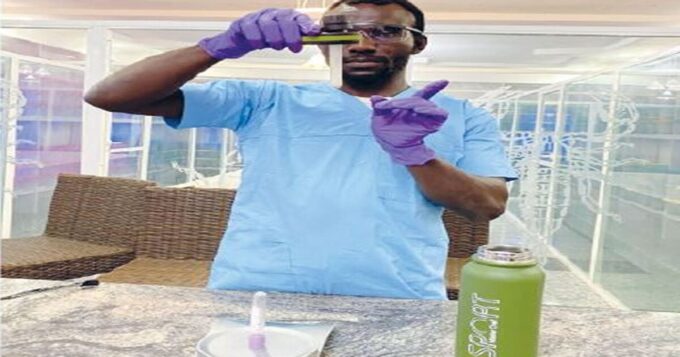
Governor Peter Mbah of Enugu State has said the state chapter of the All Progressives Congress aims to build a two-million-member party base.
Mbah stated this on Thursday during the flag-off of the APC e-registration in his ward at Owo, Nkanu East Local Government Area of Enugu State.
He explained that the era of fragmented politics that denied the state the benefits of the centre was over.
According to a statement issued by his media office, the governor described the exercise as a defining moment to concretise the movement from the Peoples Democratic Party to the APC.
The statement quoted him as saying, “It was just barely two and a half months ago that we chose partnership, progress, and chose to stop being on the sidelines. The time that we played fragmented politics is over.
“We no longer want to be on the sidelines, but we want to be at the centre and play dominant politics. This requires that we support the politics at the centre.
“So, we have a target of registering at least a minimum of two million persons here in Enugu because when we had this grand movement, it was not about Peter Mbah, the state government, or a particular arm of government. It was total.”
Mbah explained that the movement from the PDP to the APC in October 2025 was not to displace those already in the party, but to make it stronger and more beneficial to the people of the state.
He assured all that President Bola Tinubu’s programmes and the benefits of his policies would percolate to the grassroots in the days ahead.
“If you look at some of the programmes and policies of the government, particularly the Renewed Hope Ward Development Programme, it is a programme designed to empower over 8.8 million people directly,” he said.
In their remarks, the Deputy National Chairman (South) of the APC, Chief Emma Eneukwu, and the Chairman of the Caretaker Committee of the APC in Enugu State, Dr Ben Nwoye, said the aim of the e-registration was to digitalise the party’s database and align it with 21st-century realities and needs.
















Leave a comment